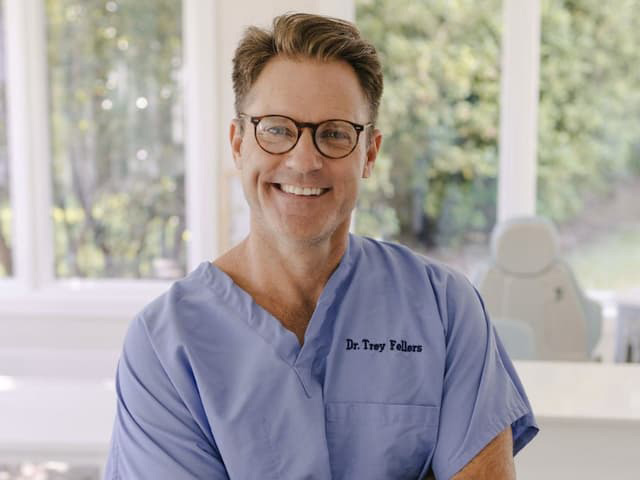
One Samford University alumnus is on a mission to save millions of children from having to go to the dentist with major teeth problems. Trey Fellers ’95, an English and biology graduate and now pediatric dentist with his own practice in Fairhope, Alabama, created a one-of-a-kind gadget to help prevent what is known by dentists nationwide as "pacifier teeth."
“I looked at the design of every pacifier and said, ‘something could be better,’ Fellers said. "I can make a better shape that should help reduce some of these problems."
Prolonged use of the traditional pacifier can cause children to develop dental malocclusion, a misalignment of the teeth, such as an open bite, crossbite or overjet. It can also lead to chronic ear infections.
"If everybody got their child off the pacifier at two years of age, we wouldn't have as many issues," Fellers said. "The teeth would more than likely self-correct and not be a problem. But unfortunately, people are not getting that information."
The longer the habit continues, the more likely it is for children to need orthodontic treatment in the future.
"I see it just about every day," Fellers said. "The further you go with the pacifier, the more damage and time it takes for the teeth to fix themselves."
Children being impacted day in and day out inspired Fellers to brainstorm a solution.
"I saw so much malocclusion I thought that maybe if the pacifier was specifically designed with the primary purpose of reducing the negative oral effects, what might that look like?" Fellers said.
According to Fellers, using a traditional pacifier for long periods isn't solely to blame for children developing tooth problems. He believes it has mostly to do with how it is designed.
"When an elastic material deforms, it usually wants to reform to its original shape,” Fellers said. “This reforming opens the child’s mouth, which allows for a super eruption of the posterior teeth, thus creating an open bite. The reforming, along with the tongue, can lead to the increased overjet."
Fellers spent the majority of 2020 creating a pacifier that wouldn't do that. And it didn't take long. Fellers credits his time at Samford’s Howard College of Arts and Sciences for being able to foster such creativity.
“That creative aspect has helped me in pediatrics, I think leaps and bounds," Feller said. "It wouldn’t be something that I would have directly thought, but indirectly I know it was me having fostered that at Samford that has made a huge difference."
Feller's pacifier mimics the shape of how a child's mouth would naturally deform a pacifier when sucking on it, thus helping prevent children from developing malocclusion because they’re no longer having to work against the pacifier.
"I just started designing it, kind of thinking more for fun, more as a mental exercise, but I ended up coming up with something that I truly believed in," he said.
He's not the only one. That same year, Fellers received a patent and then later sold it to a couple running a baby product company out of Tennessee called Ryan & Rose. They, too, believed Fellers had something special.
“The response has been incredible," Fellers said. "Since the launch, this pacifier has exceeded my expectations.”
Feller’s pacifier, Cutie PAT Smile, can be found on Ryan & Rose's website with the intention that one day it will be sold at Target and other retail stores.
“Because I feel that this is a profession I was called into, I feel like everything I do should be glorifying to God, and I take it seriously," Fellers said. "I really want to be a part of helping as many people as I can.”
